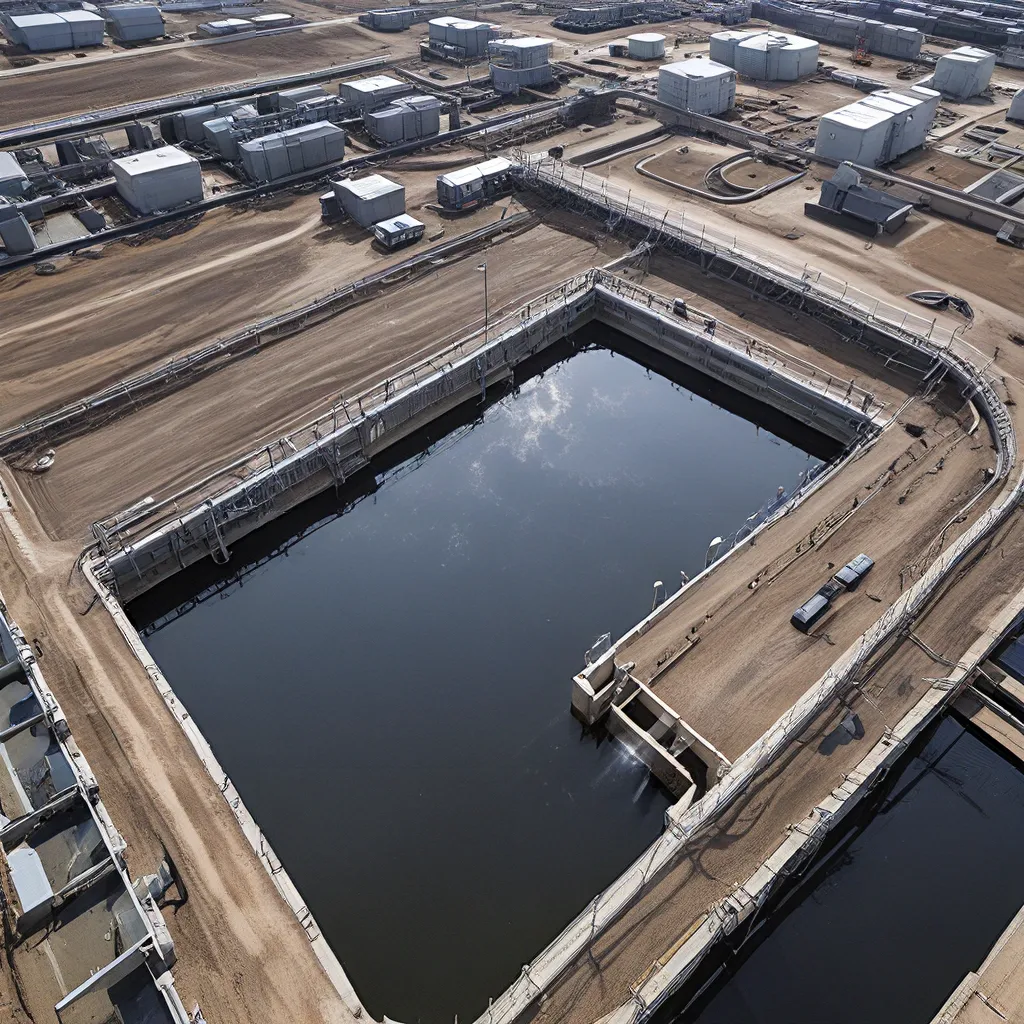
In the ever-evolving world of environmental sustainability, the wastewater treatment industry has emerged as a shining beacon of innovation and progress. As a professional in this field, I’m thrilled to share with you the remarkable strides we’ve made in transforming wastewater treatment into an energy-positive operation.
Unlocking the Power of Wastewater
It may come as a surprise, but wastewater is far from a mere byproduct – it’s a treasure trove of untapped energy. Recent advancements in wastewater treatment technology have enabled us to harness this potential, turning what was once a burden into a valuable resource.
Through the integration of cutting-edge processes like anaerobic digestion and biogas production, we can now extract methane and other biofuels from the organic matter in wastewater. This recovered energy can then be used to power the very facilities that treat the water, creating a self-sustaining cycle of efficiency.
Pioneering research has shown that energy-positive wastewater treatment plants can actually produce more energy than they consume, effectively becoming net energy producers. This remarkable feat is a testament to the ingenuity and dedication of the industry, as we strive to maximize the potential of our natural resources.
Optimizing Energy Recovery
But how do we achieve this remarkable feat of energy-positive operations? It all comes down to a delicate balance of innovative technologies, strategic process optimization, and a deep understanding of the complexities involved.
One of the key strategies is the utilization of advanced anaerobic digestion systems. These systems harness the power of anaerobic bacteria to break down organic matter, producing biogas rich in methane. This biogas can then be captured, purified, and used to generate electricity or heat, powering the treatment plant and potentially even feeding the local energy grid.
Cutting-edge research has also explored the integration of microbial fuel cells and bioelectrochemical systems into wastewater treatment processes. These technologies leverage the natural metabolic processes of microorganisms to directly convert the organic matter in wastewater into electrical energy, further enhancing the energy-positive potential of the operations.
But the journey to energy-positive doesn’t stop there. Innovative process optimization techniques, such as real-time monitoring and predictive analytics, play a crucial role in fine-tuning the entire system for maximum efficiency. By constantly monitoring key parameters and adjusting the treatment processes accordingly, we can ensure that every drop of wastewater is utilized to its fullest potential.
The Ripple Effect of Energy-Positive Wastewater Treatment
The benefits of energy-positive wastewater treatment extend far beyond the confines of the treatment plant itself. As we harness the power of wastewater, we’re not only reducing our environmental impact but also contributing to the wider global effort towards sustainability.
Studies have shown that energy-positive wastewater treatment plants can offset a significant portion of their own energy consumption, as well as potentially providing excess energy to the local community. This has a ripple effect, reducing the strain on traditional energy sources and contributing to the broader decarbonization of our society.
But the impact doesn’t stop there. By transforming wastewater into a valuable resource, we’re also reducing the need for energy-intensive water treatment and disposal methods. This, in turn, leads to a lower carbon footprint and a more sustainable water management system – a win-win for both the environment and the community.
Embracing the Future of Wastewater Treatment
As we continue to push the boundaries of what’s possible in the wastewater treatment industry, I’m filled with a sense of excitement and optimism. The future is bright, and I believe we’re just scratching the surface of what can be achieved.
Ongoing research and innovation in areas like bioelectrochemical systems, algae-based treatment, and resource recovery hold the promise of even greater advancements. Experts are actively exploring ways to extract valuable materials like bioplastics, nutrients, and precious metals from wastewater, further amplifying the circular economy potential of our operations.
Of course, the path forward is not without its challenges. Complex regulatory frameworks, technological limitations, and public perception barriers will all need to be navigated with care. But I’m confident that with continued collaboration, investment in R&D, and a steadfast commitment to sustainability, we can overcome these hurdles and redefine the future of wastewater treatment.
At Alpha Wastewater Services, we’re at the forefront of this transformation, constantly exploring new ways to maximize efficiency and minimize our environmental footprint. Join us as we embark on this exciting journey, where wastewater is no longer a burden, but a vital resource in our pursuit of a greener, more sustainable future.